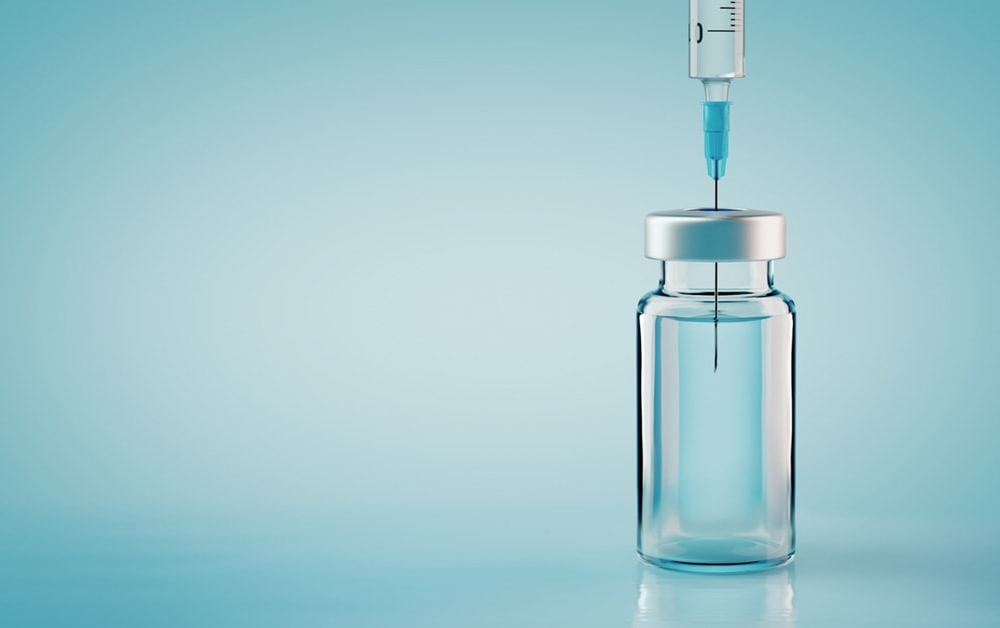

Freelance health journalist and former neuroscientist interested in a wide variety of life science topics. David also writes for The Guardian, BBC, National Geographic, NBC News, Wired, TIME and others.
Around the world, scientists have long sought a solution for respiratory syncytial virus or RSV, a pathogen which can prove lethal to both the very young and the very old.
Every year RSV hospitalises three million children under five years old, along with approximately 336,000 older adults. While it has always flown under the radar, relatively speaking, compared to outbreaks of other respiratory viruses such as influenza, it poses a substantial burden to healthcare systems both in the western world and low income nations.
As an example, the total global healthcare costs of RSV-associated infections in young children in 2017 were estimated to be in the region of £4.1 billion. Last month, the Lancet Global Health published a paper which described RSV in infants as ‘the hidden community burden.’
However the Covid-19 pandemic has inadvertently thrown a spotlight on RSV in a way which has never happened before. The combination of prolonged social distancing, mask wearing, and quarantining had the effect of lowering base levels of immunity to circulating infections in a way which has never happened before. As a result, RSV infection rates surged in 2021, focusing attention on the virus in a renewed fashion.
Now, four major pharmaceutical companies – GSK, Janssen, Pfizer and Moderna – all have Phase III trials of RSV vaccines underway. If they succeed, it will be the first time that an RSV jab has reached the clinic after more than half a century’s worth of failed attempts.
Scientists first began trying to make an RSV vaccine in the 1960s, using an inactivated form of the virus. But those initial attempts ended in a tragedy which set the field back decades. The vaccine actually backfired and made the disease worse in children when they were later naturally infected with RSV, inducing too few antibodies against the virus and causing an excessive inflammatory response. It resulted in a severe lung illness which put most of the children in the trial in hospital, and caused two deaths.
“The vaccines caused an increase in disease severity and that was terrifying,” says Peter Openshaw, professor of experimental medicine at Imperial College London, who ranks No.5 for RSV on Insciter.com. “So that experience, I think, held the whole field back because everyone became very, very cautious about trying to make vaccines.”
We now know that vaccine researchers were focusing on the wrong form of a key protein which RSV uses to bind with human cell membranes, known as the F protein. Once it binds, the F protein undergoes a major transformation into its postfusion form, the version of the protein which scientists had been mistakenly targeting for decades.
However two years ago, structural biologists at the US National Institute of Allergy and Infectious Disease, managed to find a way of stabilising the F protein in its prefusion form – the shape it takes when it is ready to invade cells. For the first time, they were able to elucidate and unveil the prefusion structure, finally providing pharma companies with a viable target for designing vaccines.
“The recent understanding of pre-fusion structure of the F protein and development of ways to stabilize this structure has been a major advance,” says Larry Anderson, professor of infectious diseases at Emory University School of Medicine, who ranks No.4 for RSV on Insciter.com. “It was known that the F protein was a key protein but ways to stabilize its pre-fusion form a recent development. The pre-fusion form has proven much more effective at inducing neutralising antibodies and it appears to be much more effective at inducing protective immunity in clinical trials as well.”
The four RSV vaccines currently in Phase III trials use the same array of technologies as the Covid-19 vaccines. The GSK and Pfizer jabs contain the prefusion F protein itself, while Janssen’s vaccine utilises a modified adenovirus to produce this protein after it has been injected into the body. Moderna’s vaccine, which makes use of messenger RNA, the newest vaccine technology around, to produce the prefusion F protein once the RNA is inside the body’s cells.
The data from early trials is promising and suggests that the vaccines will be both safe and effective. Janssen, Moderna and GSK have released data showing that their jabs can increase the levels of neutralising antibodies by 9-15 fold.
However, it appears that the world will have to wait a little longer before RSV vaccines are available for young children. All of the Phase III trials are being conducted in adults over 60.
For Openshaw this is a positive development, for while RSV infections in young children receive the most attention, the impact of the virus in vulnerable elderly populations has long been under-recognised. “It’s fascinating to me as somebody who has spent most of his life, pushing RSV not just as a disease of pediatrics, but also adults, that this looks like it’ll be the first group in which an RSV vaccine will become available,” he says.
Scientists are still hoping to develop an RSV vaccine for newborn babies, but there is much more caution surrounding this area. The most severe RSV infections of all occur within the first two months of life, but at this stage, the developing immune systems of newborn babies do not tend to respond to immunisations.
“Many of the vaccines being developed for elderly adults are not suitable for young children,” says Anderson. “There are essentially two vaccine development paths, one for adults and possibly older children, and one for young children.”
However one idea is to try and vaccinate babies while they are still in the womb. GSK and Pfizer are both running clinical trials in which their RSV vaccines are given to pregnant mothers a few months before they give birth, at which point the mother makes antibodies which are then transferred via the placenta to their child. The aim of the trial is to see whether this yields significant antibody levels in their babies at birth and helps protect them from RSV during the first year of life.
Over the last eighteen months, monoclonal antibodies have gained increasing traction as a form of emergency treatment for people who have been hospitalised with Covid-19.
Now monoclonal antibodies are also being investigated as a form of preventative treatment for RSV. Pharma companies AstraZeneca and Sanofi are teaming up to test a monoclonal antibody called nirsevimab which is directed against the prefusion form of the F protein.
This treatment has already proved effective at reducing RSV infections in a phase III trial in very young children.
“The data on monoclonal antibodies as a prophylaxis for RSV is very good and effectively prevents disease in high risk children,” says Anderson. “One is presently licensed and used for prophylaxis. New ones that appear to be better are in development.”
While monoclonal antibodies are typically associated with very high price points in adults, in children a far lower dose is required which makes them much more economically viable.
“In babies, this antibody preventative treatment looks like it is highly effective, with a single shot lasting the whole of the winter season,” says Openshaw.
© 2021 Insciter. All rights reserved. Insciter is a technology application which serves as a search engine and data provider
Trading name of Layer IV Limited. Registered in England and Wales No. 11737675